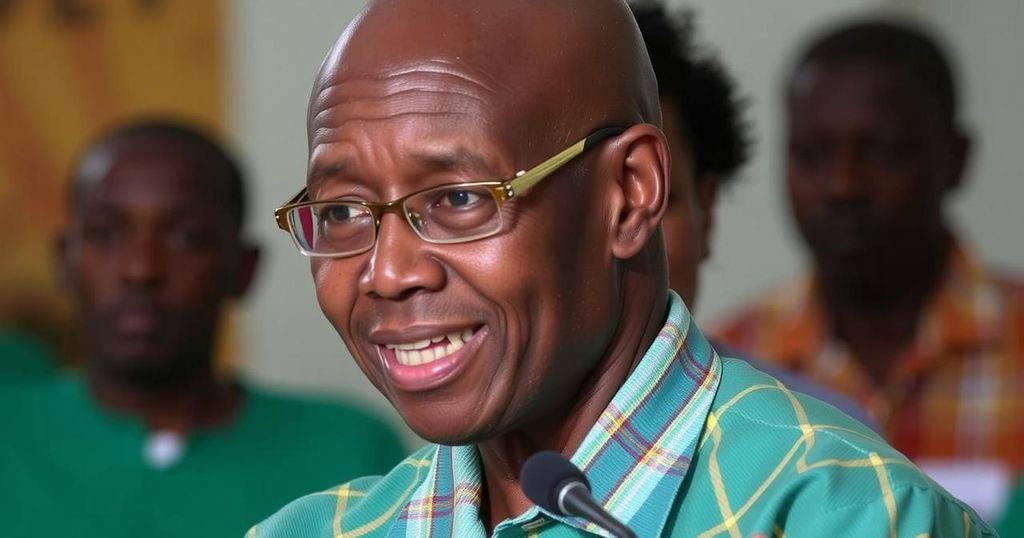Mozambique is experiencing significant unrest following the ruling Frelimo party’s electoral victory in the October 9 presidential election, which has been contested by opposition parties. Reports indicate over 130 fatalities amidst post-election violence and widespread destruction. The situation has prompted concern from the South African Council of Churches regarding regional stability and humanitarian needs, while efforts at dialogue between political factions are ongoing.
Recent political turmoil in Mozambique has sparked violent protests following the ruling Frelimo party’s announcement of victory in the October 9 presidential election. Major opposition figures, including the new party Podemos and their leader Venancio Mondlane, have disputed the legitimacy of the electoral outcome, alleging widespread fraud. As a result, civil unrest has escalated, leading to reports of over 130 fatalities, extensive property damage, and a climate of fear throughout cities such as Maputo, Beira, and Nampula. Observations from the South African Council of Churches (SACC) have depicted the situation as perilous, with police forces reportedly under attack by citizens disillusioned with the government’s response to the violence. Additionally, the ongoing crisis has resulted in significant displacement of citizens, prompting concerns regarding regional stability, as many flee to neighboring countries.
In a statement by SACC members, the alarming conditions faced by Mozambicans were highlighted. They specifically noted tragic incidents involving looting, arson, and violence that have disrupted daily life and incited a protective response among civilians, who have taken it upon themselves to safeguard their properties absent of government support. Further complicating the situation are fears regarding escaped prisoners seeking retribution against those responsible for their arrests. The implications of such unrest extend beyond Mozambique, as the SACC urged the Southern African Development Community (SADC) to intervene urgently to address the cascading effects of instability in the region. Amidst these developments, the SACC and the Christian Council of Mozambique (CCM) are mobilizing resources to provide basic necessities, highlighting their commitment to assisting those affected.
While there have been preliminary efforts to engage in dialogue between the Frelimo party and opposition representatives, a resolution remains elusive. SACC members advocate for national unity and reconciliation, urging collective efforts to prioritize the well-being of the affected population. As the humanitarian crisis unfolds, the SACC emphasizes the necessity for sustained negotiation efforts and immediate action from regional organizations to restore peace and stability in Mozambique.
Mozambique has faced a turbulent political climate following the announcement of electoral results that confirmed the ruling Frelimo party’s continued dominance. The country’s history of contentious elections has led to heightened tensions, particularly among opposition parties and civil society groups that allege systematic fraudulent practices. The October election was no exception, with significant unrest erupting as citizens voiced their discontent. Furthermore, clashes between law enforcement and protestors have exacerbated the situation, resulting in casualties and widespread fear among the populace. The discourse surrounding the potential for regional instability due to mass displacements has prompted urgent calls for intervention from regional organizations such as SADC, underscoring the interconnectedness of political events in Southern Africa.
In summary, the current political crisis in Mozambique has led to serious civil unrest following disputed electoral outcomes. With a concerning death toll and displacement of thousands, the situation necessitates urgent attention both domestically and within the Southern African region. The SACC and CCM are advocating for humanitarian support, national unity, and immediate intervention from regional bodies to prevent further deterioration of the situation. Continued dialogue remains vital as Mozambique grapples with its identity and stability in the face of escalating violence and public discontent.
Original Source: www.aciafrica.org






